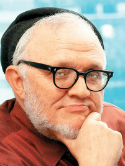Comparison of antigen constructs and carrier molecules for augmenting the immunogenicity of the monosaccharide epithelial cancer antigen Tn Journal Article
| Authors: | Kagan, E.; Ragupathi, G.; Yi, S. S.; Reis, C. A.; Gildersleeve, J.; Kahne, D.; Clausen, H.; Danishefsky, S. J.; Livingston, P. O. |
| Article Title: | Comparison of antigen constructs and carrier molecules for augmenting the immunogenicity of the monosaccharide epithelial cancer antigen Tn |
| Abstract: | We have demonstrated previously that the optimal method for inducing an antibody response against defined cancer antigens is covalent conjugation of the antigen to keyhole limpet hemocyanin (KLH) and use of the potent saponin adjuvant QS-21. Single molecules of glycolipids (tetrasaccharides, pentasaccharides, or hexasaccharides) and MUC1 peptides (containing between one and five MUC1 tandem repeats) conjugated to KLH have proven sufficient for antibody recognition and vaccine construction. However, cancer specificity of monoclonal antibodies against the monosaccharide Tn and disaccharide sTn comes largely from recognition of clusters (c) of these molecules on the cell surface. Tn consists of a monosaccharide (GalNAc) O-linked to serine or threonine on epithelial cancer mucins which are uniquely rich in serines and threonines. We test here several Tn constructs: Tn monosaccharide, Tn(c) prepared on a triple threonine backbone, and Tn prepared on a partially or fully glycosylated MUC1 backbone. We determine that Tn(c) is more effective than Tn, and conjugation to KLH is more effective than conjugation to BSA or polystyrene beads for inducing ELISA reactivity against Tn, and FACS reactivity against Tn-positive tumor cells. Surprisingly, MUC1 glycosylated with Tn at three or five sites per 20 amino acid MUC1 tandem repeat and conjugated to KLH, induced the strongest antibody response against Tn and tumor cells expressing Tn, and had the additional advantage of inducing antibodies against MUC1. © Springer-Verlag 2004. |
| Keywords: | controlled study; human cell; nonhuman; comparative study; flow cytometry; mouse; animals; mice; animal experiment; cell line, tumor; drug synthesis; immunoreactivity; enzyme linked immunosorbent assay; mice, inbred c57bl; cancer vaccine; cancer vaccines; immunogenicity; antibody response; tumor cell; carcinoma; glycosylation; threonine; bovine serum albumin; mucin 1; enzyme-linked immunosorbent assay; polystyrene; fluorescence activated cell sorting; antibodies, neoplasm; antigens, tumor-associated, carbohydrate; tn antigen; keyhole limpet hemocyanin; hemocyanin; vaccines, conjugate; conjugate vaccine; tandem repeat; microspheres; ca-15-3 antigen; monosaccharide; muc1; glycosylated muc1 |
| Journal Title: | Cancer Immunology, Immunotherapy |
| Volume: | 54 |
| Issue: | 5 |
| ISSN: | 0340-7004 |
| Publisher: | Springer |
| Date Published: | 2005-05-01 |
| Start Page: | 424 |
| End Page: | 430 |
| Language: | English |
| DOI: | 10.1007/s00262-004-0584-y |
| PUBMED: | 15625606 |
| PROVIDER: | scopus |
| DOI/URL: | |
| Notes: | --- - "Cited By (since 1996): 53" - "Export Date: 24 October 2012" - "CODEN: CIIMD" - "Source: Scopus" |
Altmetric
Citation Impact
BMJ Impact Analytics
MSK Authors
-
 145
145Ragupathi -
 539
539Danishefsky -
 14
14Yi -
 228
228Livingston -
 9
9Kagan
Related MSK Work


